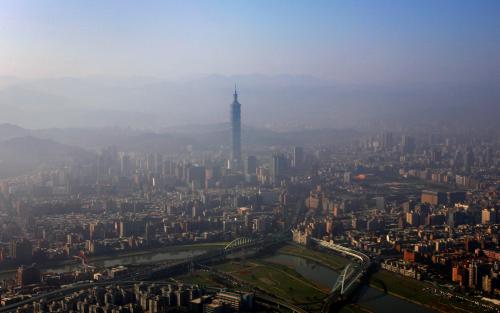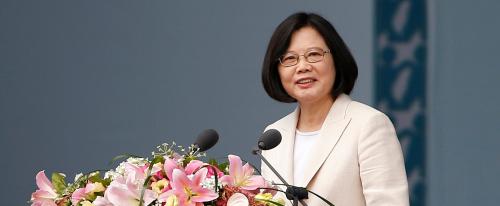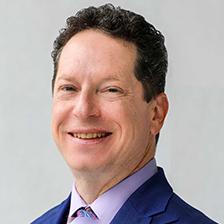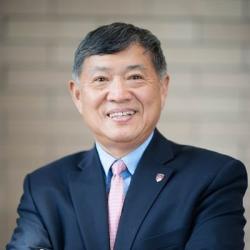2016
Since President Tsai Ing-wen’s May inauguration, her administration has faced daunting challenges in trying to implement a complex domestic and foreign policy agenda. President Tsai has consistently avowed her intention to preserve the cross-Strait status quo, but Beijing has just as consistently insisted on certain political preconditions before it will accommodate to her government. With her first 100 days recently completed, Tsai must now look forward on how best to govern the island and manage cross-Strait relations for the next four years.
On September 15, the Center for East Asia Policy Studies at Brookings, the Freeman Chair in China Studies at the Center for Strategic and International Studies, and the Institute of International Relations at National Chengchi University in Taipei co-hosted a public conference to analyze key opportunities and challenges in cross-Strait relations amidst shifting domestic, regional, and global conditions. Leading experts from Taiwan, the United States, and mainland China discussed the recent developments in cross-Strait relations, examined current political and economic conditions in mainland China and how they impact Beijing’s approach to Taiwan, and evaluated Taipei-Washington-Beijing relations. Cheng-Yi Lin, deputy minister of the Mainland Affairs Council, made an opening keynote address.
Related Content

Richard C. Bush
August 3, 2016

Richard C. Bush
May 23, 2016
Agenda
-
September 15
-
Welcome
9:00 am
 Richard C. Bush Nonresident Senior Fellow - Foreign Policy, Center for Asia Policy Studies, John L. Thornton China CenterCKJChristopher K. Johnson Senior Adviser and Freeman Chair in China Studies - Center for Strategic and International StudiesSKStanley Kao Representative - Taipei Economic and Cultural Representative Office in the United States
Richard C. Bush Nonresident Senior Fellow - Foreign Policy, Center for Asia Policy Studies, John L. Thornton China CenterCKJChristopher K. Johnson Senior Adviser and Freeman Chair in China Studies - Center for Strategic and International StudiesSKStanley Kao Representative - Taipei Economic and Cultural Representative Office in the United States -
Keynote Address
9:10 am
LCLin Cheng-Yi Deputy Minister - Mainland Affairs Council -
Panel 1: Opportunities and challenges in cross-Strait relations
9:45 am
Moderator
 Richard C. Bush Nonresident Senior Fellow - Foreign Policy, Center for Asia Policy Studies, John L. Thornton China Center
Richard C. Bush Nonresident Senior Fellow - Foreign Policy, Center for Asia Policy Studies, John L. Thornton China CenterPanelist
ASDArthur Shuh-Fan Ding Research Fellow and Director - Institute of International Relations, National Chengchi UniversityYJYan Jiann-fa Professor - Chien Hsin University of Science and TechnologyZZZhu Zhiqun Associate Professor of Political Science and International Relations - Bucknell University, Chair - China Institute David G. Brown Visiting Scholar in China Studies, Paul H. Nitze School of Advanced International Studies - Johns Hopkins University
David G. Brown Visiting Scholar in China Studies, Paul H. Nitze School of Advanced International Studies - Johns Hopkins University -
Coffee Break
11:00 am
-
Panel 2: Political and economic developments in mainland China
11:15 am
Moderator
 Scott Kennedy Senior Adviser and Trustee Chair in Chinese Business and Economics - Center for Strategic and International Studies @KennedyCSIS
Scott Kennedy Senior Adviser and Trustee Chair in Chinese Business and Economics - Center for Strategic and International Studies @KennedyCSISPanelist
HSHsu Szu-chien President - Taiwan Foundation for DemocracyCCChou Chih-Chieh Professor, Department of Political Science - Graduate Institute of Political Economy, National Cheng Kung UniversityCKJChristopher K. Johnson Senior Adviser and Freeman Chair in China Studies - Center for Strategic and International Studies -
Lunch remarks: Taiwan’s regional economic integration
12:30 pm
 Scott Kennedy Senior Adviser and Trustee Chair in Chinese Business and Economics - Center for Strategic and International Studies @KennedyCSIS
Scott Kennedy Senior Adviser and Trustee Chair in Chinese Business and Economics - Center for Strategic and International Studies @KennedyCSIS -
Panel 3: U.S.-Taiwan-mainland China relations within new political environments
1:45 pm
Moderator
 Richard C. Bush Nonresident Senior Fellow - Foreign Policy, Center for Asia Policy Studies, John L. Thornton China Center
Richard C. Bush Nonresident Senior Fellow - Foreign Policy, Center for Asia Policy Studies, John L. Thornton China CenterPanelist
LWLin Wen-cheng Professor, College of Social Science - National Sun Yat-sen UniversityTMTsai Ming-Yen Professor - Graduate Institute of International Politics, National Chung Hsing University Bonnie Glaser Managing Director of the Indo-Pacific Program - The German Marshall Fund of the United States @BonnieGlaser
Bonnie Glaser Managing Director of the Indo-Pacific Program - The German Marshall Fund of the United States @BonnieGlaser Zhao Suisheng Professor, Josef Korbel School of International Studies - Director, Center for China-U.S. Cooperation @SuishengZhao
Zhao Suisheng Professor, Josef Korbel School of International Studies - Director, Center for China-U.S. Cooperation @SuishengZhao
-


